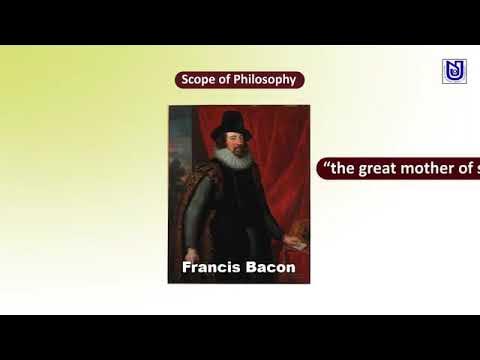MY SEARCH FOR TRUTH PART - 2
Summary
TLDRThe transcript delves into the integral connection between Hindu philosophy and ethical conduct, emphasizing that spirituality is deeply interwoven with daily life and societal progress. It critiques the misconception that Hinduism promotes escapism, arguing instead for a proactive engagement in social reform. The speaker reflects on personal contributions to philosophical discourse, advocating for a non-dogmatic approach to religion rooted in reason and experience. They highlight the urgency of addressing modern societal challenges, asserting that true human flourishing requires the cultivation of ethical and spiritual values alongside material advancement.
Takeaways
- 😀 Religion in Hinduism is deeply intertwined with ethics, aiming to remold human life and achieve knowledge of God.
- 🧘♂️ The concept of the infinite spirit drives a passion for righteousness and purity in human conduct.
- 📜 Conduct, rather than mere learning or religious practices, is highlighted as the true mark of an Aryan, according to the Mahabharata.
- 🌍 Indian philosophy is closely linked to daily life and societal practices, rather than being a detached academic pursuit.
- 🤝 Spiritual values manifest in earthly relationships such as family love, loyalty, and friendship.
- ⚖️ Modern social reforms aiming to improve community conditions align with Hindu principles of ethical responsibility.
- 💭 The doctrine of maya (illusion) should not diminish the urgency of ethical demands; it highlights the world's dependence on ultimate reality.
- 📚 The author’s writings have contributed to a growing recognition of Indian philosophy in global discussions.
- 🕊️ Ethical and spiritual ideals are essential for a well-rounded civilization, countering the mechanization of modern life.
- 🌟 The call for social and economic justice must be accompanied by a commitment to individual freedom and spiritual growth.
Q & A
What is the primary aim of Hindu religion according to the script?
-The primary aim of Hindu religion is to attain knowledge or vision of God, which is intertwined with the ethical aim of remaking human life.
How does the concept of maya relate to ethical seriousness in Hinduism?
-The doctrine of maya is often misunderstood; it emphasizes that while the world is temporary and dependent on ultimate reality, it should not be interpreted as conflicting with the urgency of ethical demands.
What role does family love and social bonds play in Hindu ethics?
-Spiritual values in Hinduism are realized on earth through empirical means such as family love, friendship, loyalty, and reverence, demonstrating that all life is seen as a sacrament.
What did Rabindranath Tagore say about the author’s work?
-Tagore expressed gratitude for the author's critical work, stating it surpassed his expectations and praised its literary grace, free from technical jargon.
What is the author's view on modern civilization's ethical and spiritual life?
-The author critiques modern civilization for its lack of spiritual depth despite advances in knowledge and science, suggesting a decline in ethical standards.
How does the author describe the current social experiments like communism?
-The author acknowledges that while these experiments attempt to ensure equitable sharing of resources, they often lead to the suppression of individual liberty and exploit baser human passions.
What does the author suggest about the historical customs and institutions of Hinduism?
-The author argues that many historical customs and institutions, once valuable, have become detrimental and must be reformed or discarded to foster social progress.
What is the author's perspective on the unity of mankind?
-The author emphasizes the importance of recognizing the unity of mankind, feeling the interconnectedness of happiness and misery across communities, as crucial for social advancement.
What critique does the author make regarding modern psychology?
-The author critiques behavioristic psychology for reducing human beings to mere observable phenomena, neglecting their inner spiritual life and individuality.
What is the author's conclusion about the inevitability of wars?
-The author rejects the idea that wars are inevitable, asserting that understanding their causes and striving for peace is essential, as peace is humanity's most desperate need.
Outlines

Этот раздел доступен только подписчикам платных тарифов. Пожалуйста, перейдите на платный тариф для доступа.
Перейти на платный тарифMindmap

Этот раздел доступен только подписчикам платных тарифов. Пожалуйста, перейдите на платный тариф для доступа.
Перейти на платный тарифKeywords

Этот раздел доступен только подписчикам платных тарифов. Пожалуйста, перейдите на платный тариф для доступа.
Перейти на платный тарифHighlights

Этот раздел доступен только подписчикам платных тарифов. Пожалуйста, перейдите на платный тариф для доступа.
Перейти на платный тарифTranscripts

Этот раздел доступен только подписчикам платных тарифов. Пожалуйста, перейдите на платный тариф для доступа.
Перейти на платный тарифПосмотреть больше похожих видео

Sejarah Filsafat barat (kata pengantar) - Bertrand Russell | Audiobook Bahasa Indonesia

Traditional Bhutanese Houses

Benefits to Maintain Celibacy in Ancient Hindu Texts - Explained by Rajarshi Nandy #celibacy

Module-1, Unit-3 (Characteristics of Philosophy)

Ethics and Professional Conduct for Professional Engineers

Upanishad Ganga | Ep 14 -Married Life | महाकवि माघ #Hindi #Hindu #ChinmayaMission
5.0 / 5 (0 votes)
